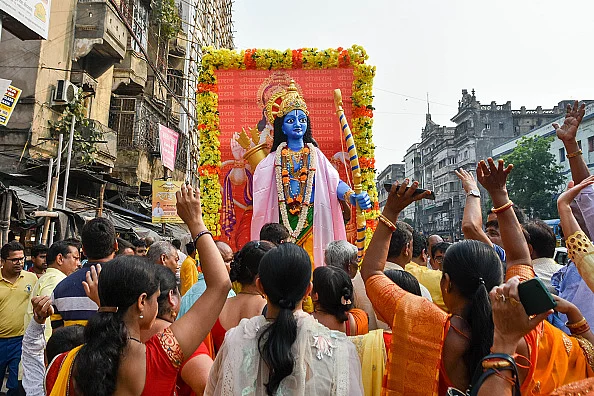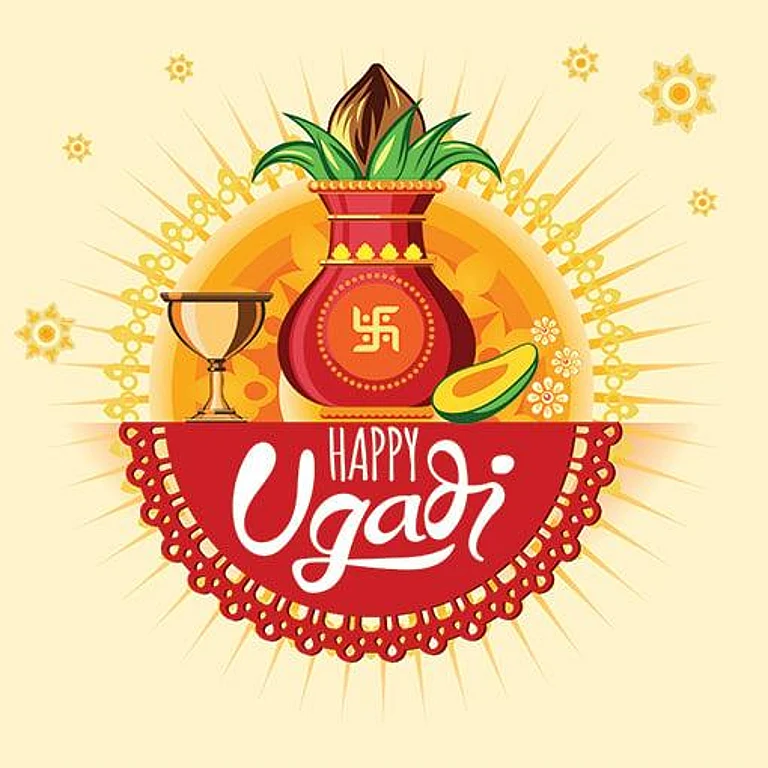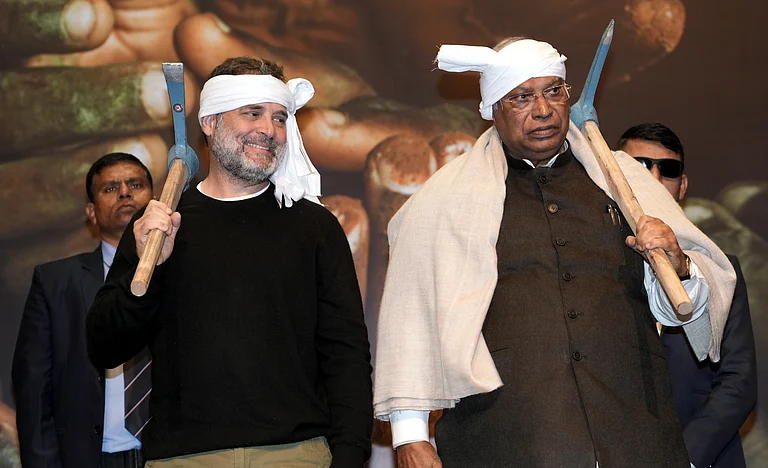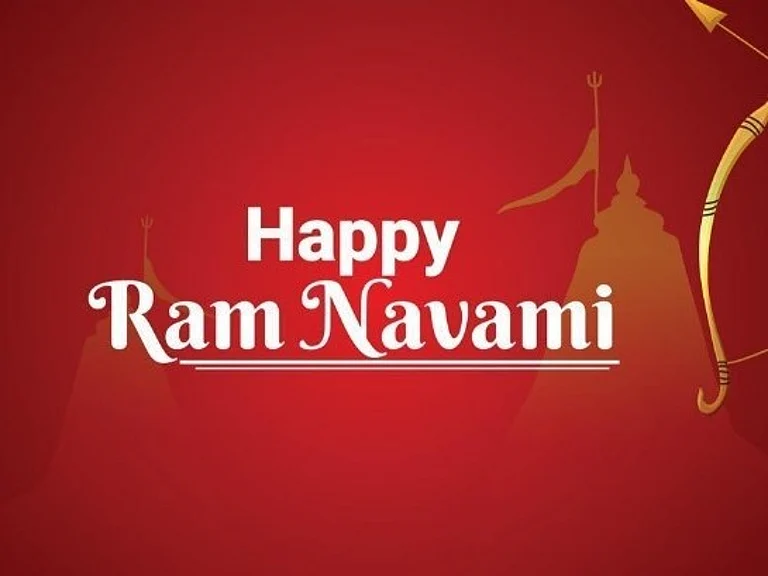For the past few years, the festival of Ram Navami has been marred by a series of scuffles and violence in many parts of the country. What used to be a peaceful religious celebration has taken a sharp political turn with ominous communal contours. Last year, clashes broke out across six states including Bihar, West Bengal, Maharashtra, Uttar Pradesh, Karnataka and Gujarat. At least two people were killed and many others were injured. Similar incidents took place the year before that. The Ram Janmabhoomi movement has come full circle for the BJP after nearly 40 years with the consecration ceremony of Ram Mandir in Ayodhya, where celebrations of Ram Navami are expected to be bigger this year. With Lok Sabha elections just days away, authorities are also anticipating tensions and have amped up security measures in sensitive areas that have witnessed clashes in the past.
In Hyderabad, a mosque was covered with a cloth as a precautionary measure on police orders. More mosques and dargahs in Hyderabad and other cities are also expected to be covered in a similar fashion. However, experts have questioned the need to do so, especially when similar steps are not taken to cover temples during Eid. The violence witnessed during the processions for the past several years with sections of India’s population facing not only marginalisation but also invisibilisation.
Meanwhile, politics also erupted ahead of Ram Navami celebrations in West Bengal where Prime Minister Narendra Modi targeted the ruling Trinamool Congress, accusing it of having “tried its best to stop Ram Navami celebrations”. Chief Minister Mamata Banerjee, on the other hand, slammed the BJP for interfering in officials’ transfers and said the saffron party would be responsible if any riots broke out.
Experts have linked the rising intolerance on religious occasions such as Ram Navami, which often coincides with Ramadan, with the growing conquest for Hindutva in the country. Communal tensions have been on the rise in India, as several human rights watchdogs have pointed out. 2023 saw increased violence against minorities, particularly Muslims, with government critics facing a pervasive environment of fear, according to Human Rights Watch’s World Report 2024.
While Outlook’s recent issue titled ‘In The Name Of Ram’ explored many stories about the city of Ayodhya, in a story titled 'Sheher-e-Paighambar', Rakhi Bose wrote how Muslims in Ayodhya witnessed the Ram Mandir inauguration 31 years after the demolition of the Babri Masjid while their only wish was to be allowed to live in peace. As Sanjay Nirupam, when he was still with Congress, writes in another story, “Whether good, bad or ugly, the fact is that ‘Ramaisation’ of Indian politics seems to be at its peak. Pran Pratishtha ceremony of Lord Ram’s idol in Ayodhya has completely transformed BJP into a Ram bhakta party.”
Outlook’s previous issues titled ‘The Many Ramayanas’ and ‘Recasting Shiva’ looked at how deities like Ram and Shiva continue to play important roles as political actors in India today. Ram is the most common name in India, of people and places—even occurring as prefixes and suffixes. The cover story, ‘Who is Ram’, looked at “Ramayana as a story of struggle against society’s imposed morality, of kings and queens who are products of their circumstances and choices”.
While the polarisation of festivals as sites of religious and political contestation is not a new phenomenon, traditions like the Bohra Diwali or the case of a Muslim family in Jharkhand celebrating Ram Navami for the past 40 years are soon becoming fading fragments of a secular tradition that not only celebrates diversity but also inclusion. In author Anand Neelekantan’s words, Hinduism is now going through a tectonic change, becoming more Abrahamic in its nature, invoking God’s name as an aggressive slogan, insisting on one holy place and the supremacy of one expression of God”.
























